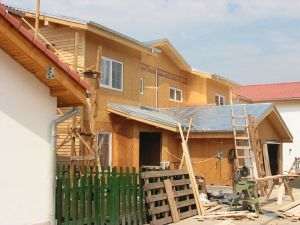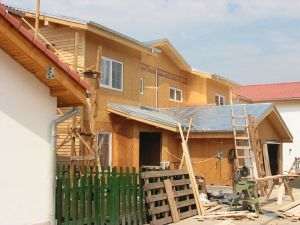The publication by Transelectrica of the prices regarding the energy balancing market displeased the electricity suppliers, who found that, although they sell a megawatt (MW) for 400 lei, they have to pay a balancing price of 1890 lei/MW. Among the dissatisfied operators is the European Electric Energy and Natural Gas Cooperative - Roenergie, whose co-founder, Daniel Burduhos, told BURSA Newspaper: "We have an average price paid for one megawatt (MW) taken from balancing of 1890 lei , given that for what we delivered we receive approximately 280 lei/MW. I find the current situation in the energy market abnormal. Things have gone wild, despite the alarm bells raised since the start of the summer season. In the final consumer's invoice, the price is calculated at 400 lei/MW, while we, as suppliers, bought a MW for almost 1900 lei. We practically bear a price difference of more than 4 times higher".
His lordship stated that the situation in the balancing market "was certainly thought out by the companies that make the most money from selling energy on balancing, most of which are state-owned energy companies".
Daniel Burduhos stated: "During certain time intervals, the respective companies do not put energy on sale, but they put it on the moment Transelectrica requests it, and thus their production balances out at astronomical prices. And so those companies make a profit in one hour that they don't in the other 23 hours of the day. If you look at the PZU price, there are enormously many days when in the evening, between 20-21, the selling price is 1800 lei, 1900 lei, 2500 lei or even 3000 lei/MW. Two or three weeks ago it was also 5000 lei/MW. A hole is deliberately made in the system, which the respective companies then come to cover".
• Average losses of 10% for energy suppliers
The representative of the Roenergie cooperative told us that on average the selling price to the customer amounts to 400 lei/MW, but in the balancing market the average price is 500 lei/MW, a loss recorded constantly throughout this year.
Mr. Burduhos mentioned: "We have an average loss on the megawatt price of 10%. The government came and capped, but did not give any money to the cap, not even an amount. Not to pay them, but to approve the refund of the price differences between the sale and the balancing market. The state collects part of the balancing market, but gives nothing back to the providers. Only a very small share of the imbalances can be settled from the price and paid by the Ministry of Energy. Under these conditions, we will continue to cover the losses as long as the 50 members of our cooperative still want to subsidize their own association. There are two cooperatives established according to European criteria in the field of energy in Romania and both face the same problem regarding the prices in the balancing market".
He pointed out that last Friday Sebastian Burduja, the Minister of Energy, stated that the list published by Transelectrica contained a computer error regarding the balancing prices, but nevertheless on Monday the new list appeared with equally high prices, which were disputed by some parties responsible for balancing, while others have requested clarification on how these rates are calculated.
Daniel Burduhos stated: "From our point of view, the numbers are astronomical. Producers, who benefit from a very high price, because they also cause imbalances in the network, because you have no way to schedule photovoltaics, not even hydro for a cent, are also affected. They make a very good price for energy, but lose track in the imbalance".
The representative of the Roenergie cooperative sounded a warning signal: "In March 2025, if there is no new ceiling, it will be quite difficult for consumers, because the suppliers will include in the final price the imbalances and the loss of the last years. If the state does not intervene to make a small ceiling, then I expect that from April 2025, the final price will be double for energy consumers. The solution would be to reduce the penalty threshold to a maximum of 20% for the energy you produce in excess of what you have communicated that you supply to the network. That is, up to this percentage of surplus, no company should be penalized. To this should be added a capped price for imbalances, say 100 euros/MW per imbalance. And then there would be no more specula to cause imbalances and everyone would calm down, because no more money would be made from this balancing market. I hope someone will take measures, because otherwise we will end up in the situation of closing the two energy cooperatives in the course of next year".
He also told us that, surprisingly, this month, no energy producer, not even the state companies, have diverted any MW through the MACE system, where participation is voluntary and the price is capped at 400 lei/MW. Under these conditions, according to Mr. Burduhos, suppliers are forced to purchase energy at much higher prices, which will deepen their recorded losses.
• Higher prices from April 2025 for end users with the lowest capped energy price
The above situation was also confirmed to us by Laurentiu Urluescu, the president of the Association of Energy Suppliers in Romania (AFEER), who, although he states that the prices are no longer as high as those in May and June, the suppliers still register losses between 10 and 15%.
Laurentiu Urluescu told us: "Things are not that serious. The tariffs were received on Friday, but some errors in the calculations were noticed and that is why Transelectrica was asked to check them and we hope that we will have a quick feedback. As the balancing prices look like in July, they are not as high as in the big months and June. Things are not so terrible anymore, but it is still bothersome for us, and the legislator and the regulator have limited to 5% the costs of the imbalances that are recognized, although there are some costs that do not belong to the suppliers. Due to the increase in prices in the balancing market we are now well above this percentage and that means a 10-15% loss for us. We register the loss, because these costs are not recognized to us, but from March 2025 they will reach the final price borne by consumers with the lifting of capping and compensation".
The President of AFEER stated, however, that he hopes that, by March 2025, the authorities will accept the additional costs as settlement, because the level of prices in the balancing market is completely different from the one in 2022 when it was established that only 5% of these costs would be recognized.
Laurenţiu Urluescu pointed out: "If at the time we were within this ceiling, we were even below it, now we are very much above it. Under these conditions, after the expiration of the capping and compensation of energy prices, the possibility of end users paying a higher price is real for consumers who pay bills at the capped price of 0.68 lei/kw. The ceiling of 0.68 lei/kw is not sustainable at the moment, as taxes and tariffs that have nothing to do with energy amount to 0.62-0.63 lei/kw. They are taxes that we collect to pass on. Consumers who have the ceiling of 0.68 lei/kw will have higher bills, but I don't think it will reach a double price per kilowatt compared to the one paid now. The increase will be 10-20 lei per bill, depending on each person's consumption".
His Lordship also said that the authorities are working on a plan to help the vulnerable consumer, so that those who really need help will receive this dedicated support. The AFEER representative concluded by saying that, according to the information he has, following the plan drawn up by the authorities, end users who have holiday homes where they consume less than 100 kilowatts per month will no longer benefit from the ceiling of 0.68 lei/kw, because they do not they can be considered vulnerable consumers.




















































